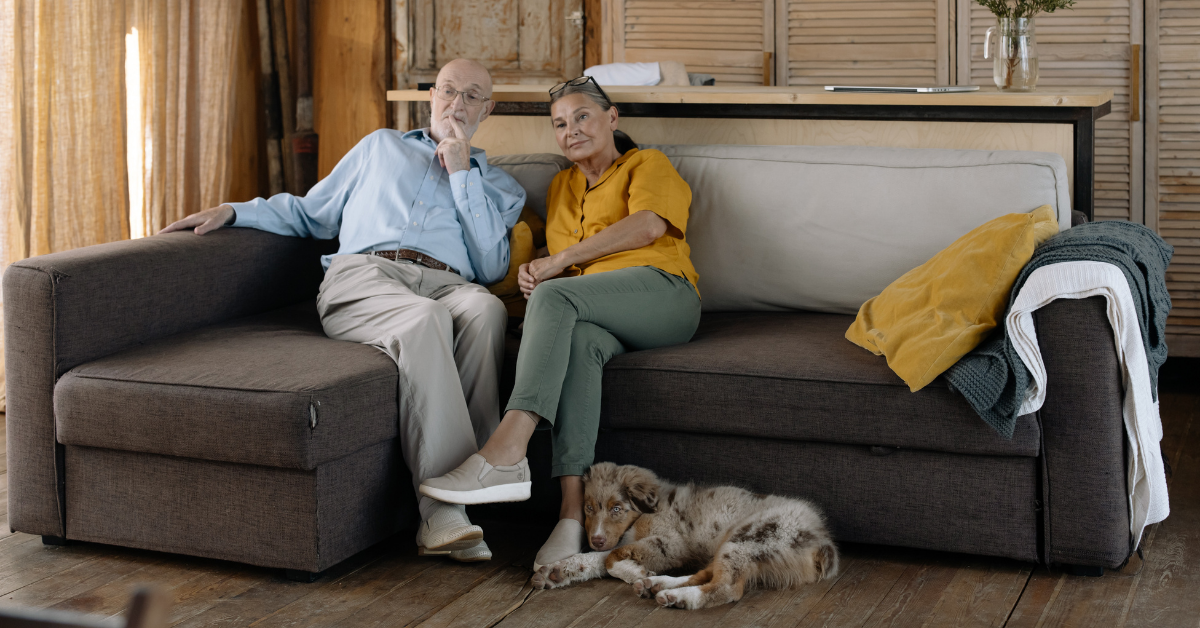
Senior Citizens as Pet Owners
Pets can be wonderful companions for today’s active senior citizens. Not only do they provide companionship for a senior who lives alone, but owning a pet can also have health benefits for them. Having a pet around can help lower blood pressure, calm anxiety, improve one’s mental health and ease the loneliness that can come with the loss of a spouse. Some senior citizens, such as those with Parkinson’s or other disorders, might even receive greater benefits from an assistance or service animal. However, if you are a senior citizen or know of one who is considering bringing a pet, or a service animal into their home, there are a number of important things to consider.
Income is one important consideration for most people, but one many overlook or underestimate. If you are living on a fixed income, be sure you can afford to buy food, necessary accessories and veterinary care for a pet. Veterinary care can be very expensive, running into the thousands of dollars in some cases. If you become ill and aren’t able to care for the pet for a period of time, do you have family or friends who can care for the pet until you are well again? If not, can you afford to hire a pet sitter to come in and take care of the pet?
You should consider your activity level. A dog can actually be a good incentive to get daily exercise since they need to be walked at least twice a day. Walking a dog can also be a good form of socialization for people who live alone. But, make sure any dog you get is not more than you can physically handle on a walk. Any dog you get should be trained to walk well on a leash. A dog that pulls on the leash or wants to run around you could cause possible injury to you if, as a result of the dogs bad leash manners you trip and fall down. If you are physically unable to care for a dog, cats are a wonderful alternative.
Are you able to drive, or do you depend on public transit or others for transportation? If you don’t drive, you should have a way to get your pet to the veterinarian. Have a plan for how you would get the pet to the vet in an emergency situation. Everyone, especially senior citizens or others with mobility issues, should have an understanding of CPR for the type of pet they have in their home as well as a well-stocked first aid kit.
Are you a senior who travels a lot? If so, make sure you factor the cost of taking your pet to a boarding facility or, of having a pet sitter stay in your home while you are away. Of course, if you travel too much, a pet might not be right for you.
If you live in an assisted living facility or a senior community, they may have pet restrictions. Be sure to check with the management to see what their rules are regarding pets before you bring one into an assisted living facility, senior community or nursing home. If they do allow pets, they may charge extra fees or deposits for them.
Have a plan for the care of your pet in case of hospitalization. Pets are a long-term commitment, so be sure your pet is provided for in case of your long-term illness or death. Many people (young and old) make provisions for their pets in their wills. See the article on estate planning (give link to article) for more information on providing continuing care for your pet in the event of your death.
There can be some unique challenges of pet ownership for seniors and the elderly, but the benefits are endless. For more information on the benefits of pet ownership for the elderly, visit the Pets for the Elderly Foundation (http://petsfortheelderly.org/), UC Davis (http://www.vetmed.ucdavis.edu/CCAB/elderly.htm), or the Delta Society (http://www.deltasociety.org/Page.aspx?pid=312).






